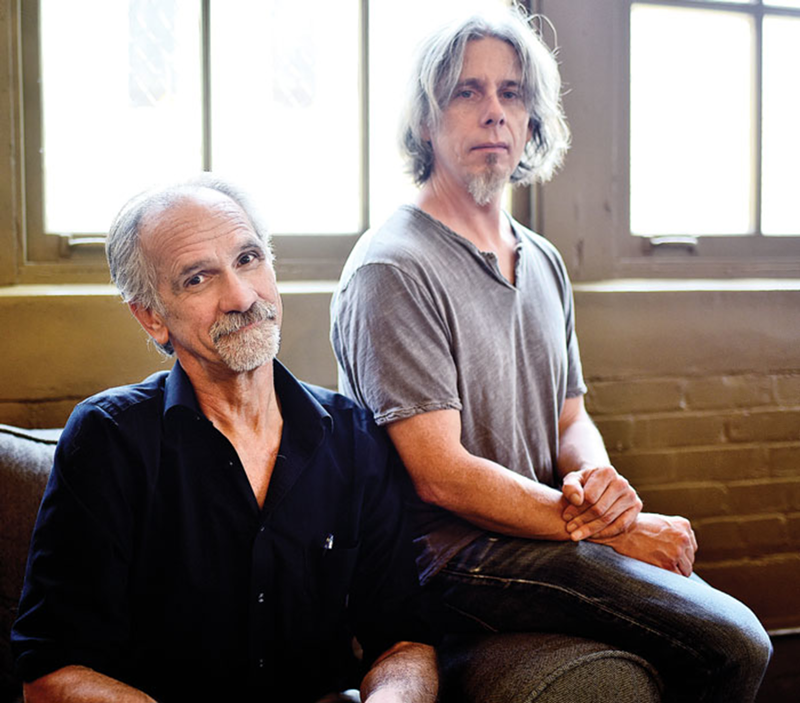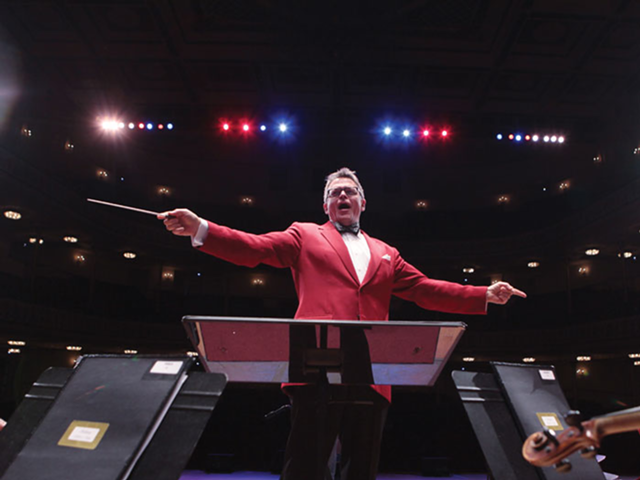
H
uddled in the Sword Room of MOTR Pub, the voices of the poets reading at the monthly Word of Mouth Cincinnati event remain at the volume usually reserved for intimate conversations in domestic settings, barely carrying sound across the small cellar-esque basement of the Over-the-Rhine bar.
At 7 p.m. on the final Tuesday of every month, Word of Mouth Cincinnati convenes here in a spoken-word rendezvous, featuring two headlining performers and a public open mic.
The slogan?
“Show Up, Mouth Off and Pay Attention.”
Co-founded last January and hosted by local writers Mark Flanigan and Jim Palmarini, the literary event has its roots in the Athens, Ga.-based Athens Word of Mouth, created by the late Aralee Strange.
Strange, a former Cincinnati and New York creative, settled in Georgia with a mission to let every voice be heard.
In Cincinnati, the open mic seems to fill a cavity in Cincinnati’s literary scene as one of its few communal public-reading opportunities, where everyone is invited to share something and listen to each other.
“It can be inspiring to continue and learn from,” Flannigan says of the program’s benefits to writers. “There’s nothing like getting up in front of an audience and knowing what did not work and what did work.”
The event’s website declares it an “intentional arc of both past and future utterance.” When asked about the phrase, Palmarini explains that the world is moving too quickly.
“The phrase is a challenge and reminder to look both forward and past to the voices that have and will inhabit our lives,” he says.
That arc was encapsulated well in last month’s reading, which showcased Bob Ambrose and Mark Bromberg, two poets from Athens, Ga.
(Word of Mouth Cincinnati has sent Cincinnati poets to Athens previously).
Both engaged their audience well, the rhythm of their voices passing through topics of travel, spirituality, sexuality and time.
The Sword Room is a good venue for Word of Mouth; its stone walls and dim lighting accompany ruminations on the human condition. And as its name suggests, the room is in fact adorned with a couple of swords, bringing attention to the idea that perhaps the only things to survive the tests of time are warfare and poetry.
The open mic, which follows the feature presenters, allows the audience to witness the unexpected.
This was certainly the case last month. Brave souls hesitantly took the “stage,” at first keeping their voices in lower registers, their poems ranging from odes to their mother’s rhubarb pie to a galvanizing recital of June Jordan’s “Poem About My Rights” that verged on performance rather than just a mere reading.
Flanigan and Palmarini act as the hosts and emcees, introducing speakers and hyping up the crowd, which, last month, consisted of families, college students, quadragenarians and elderly couples.
Each moment spent at Word of Mouth was pregnant with the possibility of revelation to be found in the art of spoken language.
When asked why the art form of spoken word has survived for millennia, Flanigan spoke of its mystery.
“It’s the only place that you can go where you can get that certain thing,” Flanigan says. “There’s just something different about writing poetry — I don’t know what. I don’t think anybody really truly knows, except there’s something to be learned from it. I think that’s the mystery, and it’s that mystery that brings people to continue doing it when there’s frankly a million other things out there that are vying for our attention, things that are even more immediate.”
Palmarini shares this sentiment and sees the role of poets as a vital one in a time where fading newspapers and a growing social-media presence have changed how we connect with people.
“Poets are our mythmakers and storytellers,” he says. “Today, more than ever, we need to tell the stories, in real time, of the people and places in our own communities.”
Many of the people who get behind the mic have never read their work before, and the program acts like a kind of workshop for them, a way to dip their toes in the water of spoken word.
Other people are regulars who haven’t missed a single meeting.
Flanigan notes that some poets use Word of Mouth events to inspire a writing routine each month.
(“Write three poems a month and in three years, you’ll have a book,” he says.)
By getting feedback on their work — either in conversation after the show or by paying attention to the audience’s reaction — bards can hone their craft in the most efficient way possible.
When asked about the future of Word of Mouth, Flanigan says he wants to continue fostering the imagination of the entire creative class while bringing in more diverse artists. Showcases could involve someone in academia or someone from the street, as long as they’re passionate.
“There’s something you can get from poetry and from writing it and hearing it that you can’t get anywhere else,” Flanigan says.
Of course, to continue his vision, people need to keep showing up.
But Palmarini isn’t too worried about the future, saying that even if Word of Mouth Cincinnati runs its course, something else would come up in its place.
“People have always needed to sing their song in verse and always will,” Palmarini says. “That’s the arc of utterance, past, present and future.”
WORD OF MOUTH CINCINNATI takes place the final Tuesday of the month at MOTR Pub. For more information, visit cincywordofmouth.com.





